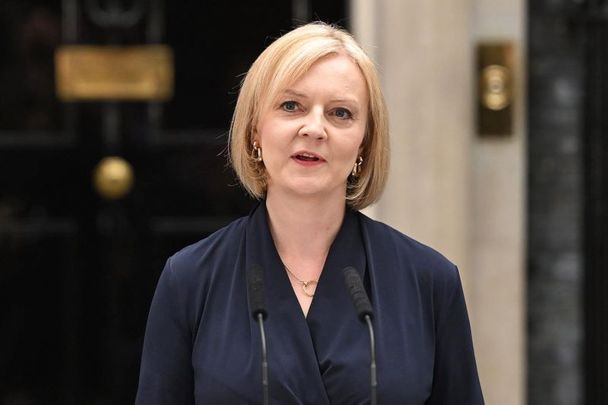There has been a breakthrough in the deadlock that has bedeviled relations between Britain and Ireland over the controversial Northern Ireland Protocol, despite defiance from the Democratic Unionist Party (DUP).
A series of developments over the weekend and early this week have contributed to optimism that productive talks on the Protocol will take place for the first time since February 11, and that the suspended Northern Ireland Executive could soon be reactivated.
Renewed activity involving the European Union, Britain, and Ireland will pressure the DUP to make a vital decision: agree to participate in reactivated Stormont institutions by October 28 or face a pre-Christmas election at a time when it is struggling for votes and Sinn Féin’s popularity among nationalists continues to rise.
New UK Prime Minister Liz Truss, whose government did an embarrassing u-turn this week on its economic plan, made it clear she is anxious to avoid further difficulty over Northern Ireland when she and hardline Brexiteer Steve Baker, who is also junior minister for Northern Ireland, extended an olive branch.
First, Baker told the Tory Party conference in Birmingham that he was sorry, and prepared to “eat humble pie,” because he failed to understand Irish concerns over Brexit.
Then, also at the Tory conference, Truss told Ulster Television that there will be an election in Northern Ireland if the parties don’t agree on the formation of an Executive by the October 28 deadline.
When it was put to her directly that it is the DUP which wouldn’t buy any compromise on the Protocol, Truss emphasized there will be an election if Stormont doesn’t resume on October 28.
The DUP defiance came on Tuesday when its former leader, Agriculture Minister Edwin Poots, told RTÉ Radio there will not be a Stormont government until the Protocol issue is resolved.
He added, “That’s the circumstances we find ourselves in, and therefore whenever Ireland invites President Biden to come over for the 25th anniversary of the Belfast Agreement in Easter next year, unless something radical happens and the EU decide to become a bit more realistic, then he’ll be coming over to the funeral of the Good Friday Agreement, not to a celebration of its 25th anniversary.”
Truss is traveling this Thursday to the first summit of the European Political Community, a meeting of 44 EU and non-EU leaders in Prague. Her surprise announcement on Monday that she will attend boosted hopes of a reset in EU-UK relations following the troubled talks over the post-Brexit Protocol.
EU and UK officials have already this week resumed talks on how to resolve the standoff over the Protocol.
European Commission spokesman Daniel Ferrie described the talks as being at “a technical level.” He added, “We need to find the solutions to bring predictability, certainty to people in Northern Ireland. We have been standing ready for a long time now to find the solutions, to negotiate.”
Baker, in his apology to Ireland at the Tory conference, said he was really sorry because relations between Britain and Ireland were “not as they should be.”
Baker, who was once chair of the powerful pro-Brexit 22-strong organization the European Research Group added, “It’s with humility that I want to accept and acknowledge that I and others did not always behave in a way which encouraged Ireland and the European Union to trust us to accept that they have legitimate interests that we’re willing to respect.”
Baker also conceded that his apology “did not go down well” with some loyalists and unionists. He added, “I sincerely want to be on the right side of all parties involved in the Belfast Good Friday Agreement so that we can make progress, get a deal and get on with the really serious issues that we face in Northern Ireland.”
Taoiseach Micheal Martin welcomed Baker’s apology as “honest” and “very helpful.” He praised the tone of Baker’s comments.
The Protocol was part of a post-Brexit deal to ensure a soft trade border in Ireland. Unionists, mainly in the DUP, oppose it because they believe it has been replaced by a border in the Irish Sea.
*This column first appeared in the October 5 edition of the weekly Irish Voice newspaper, sister publication to IrishCentral.




Comments